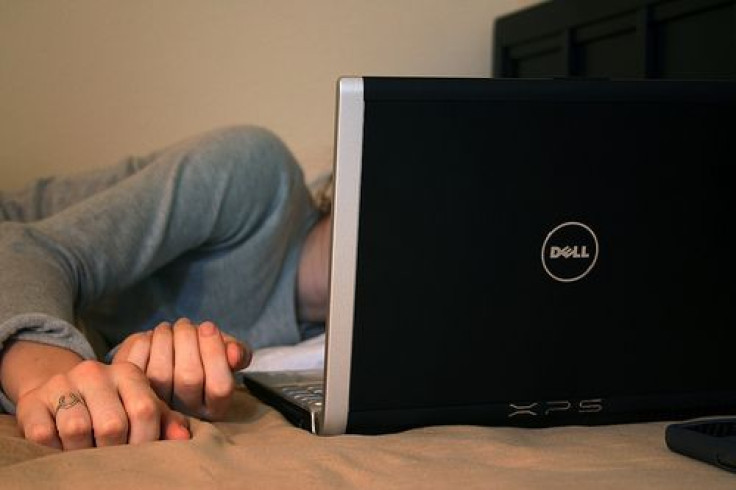Internet Overload Causes People To Sacrifice Sleep; Catching Up With Social Media More Important Than Resting

It’s an easy concession to make, checking just one more site or updating one more status before going to bed. But suddenly that “one more” update has turned into 10 more, and now it’s an hour later and precious minutes of sleep are in the past. Chances are, this case of Internet overload resonates with large segments of the population — a growing body of Internet users who have begun sacrificing shut-eye for tweets and alerts.
The health ramifications of Internet overload are vast, and if the behavior is prolonged, they turn severe. A wealth of research has concluded that artificial light from electronic devices can be harmful to people’s eyes when the products are used at night. Not only does the short, blue wavelength hurt a person’s vision, but it also throws off his or her circadian rhythms, making nighttime seem like day. A new poll adds to this growing body of research, showing that many people simply stay awake longer when using social media.
Researchers working at the pill company Nytol conducted a survey of people in Britain, asking them about their sleep habits and quality of sleep. More than half of the 2,000 participants reported using an electronic device while in bed, and one-fifth said they need to check Twitter or Facebook for fear “of missing out.” One in 10 people described their quality of sleep as “good,” and, perhaps most surprisingly, one-quarter said they were addicted to checking e-mails and social media in bed.
Nytol’s poll echoed results found in late 2012 from a poll conducted by Travelodge hotels, which found 72 percent of the 6,000 people surveyed spend their time before bed checking friends’ Facebook updates, reports UPI. While experts commonly recommend a person getting eight hours of sleep at minimum per night, the average sleep duration was only six hours and 21 minutes.
"Adults don't realize what impact using computers, cellphones and other gadgets before falling sleep is having on their night's sleep,” said Dr. Michael Hastings, research scientist for the Medical Research Council at Addenbrooke's Hospital in Cambridge. “Being exposed to bright light from computer and cellphone screens while in bed completely delays the brain and body's ability to get to sleep."
Health Risks, Short-Term And Long-Term
The one-two punch of blue-light emission and decreased sleep time makes for an uncomfortable and uninvited morning. When a person tries to fall asleep, the brain releases a hormone called melatonin, which aids the body in sleep function. Backlight devices such as tablets and cell phones suppress melatonin’s production, making falling asleep more difficult and waking up even harder.
In the short term, the consequences of insufficient sleep mostly concern a person’s judgment and memory. Reaction time will be slower. A person may become moody. In the long term, serious bodily health is at risk. Chronic sleep deprivation can lead to poor digestion, diabetes, cardiovascular disease, and early death. Sleep recharges the body and lets natural functions reset, which is why excess cortisol — a stress hormone — isn’t produced, and neither is leptin, a hormone that alerts the brain that your appetite is sated.
"As technology to keep us connected improves, we face a new battle with trying to switch off at night,” said Dr. Chris Idzikowski, director of the Edinburgh Sleep Centre, who offers a simple solution to late-night social media cravings. “Sufferers should try and avoid using phones, laptops, and other screen-based devices for at least an hour before bed."



























